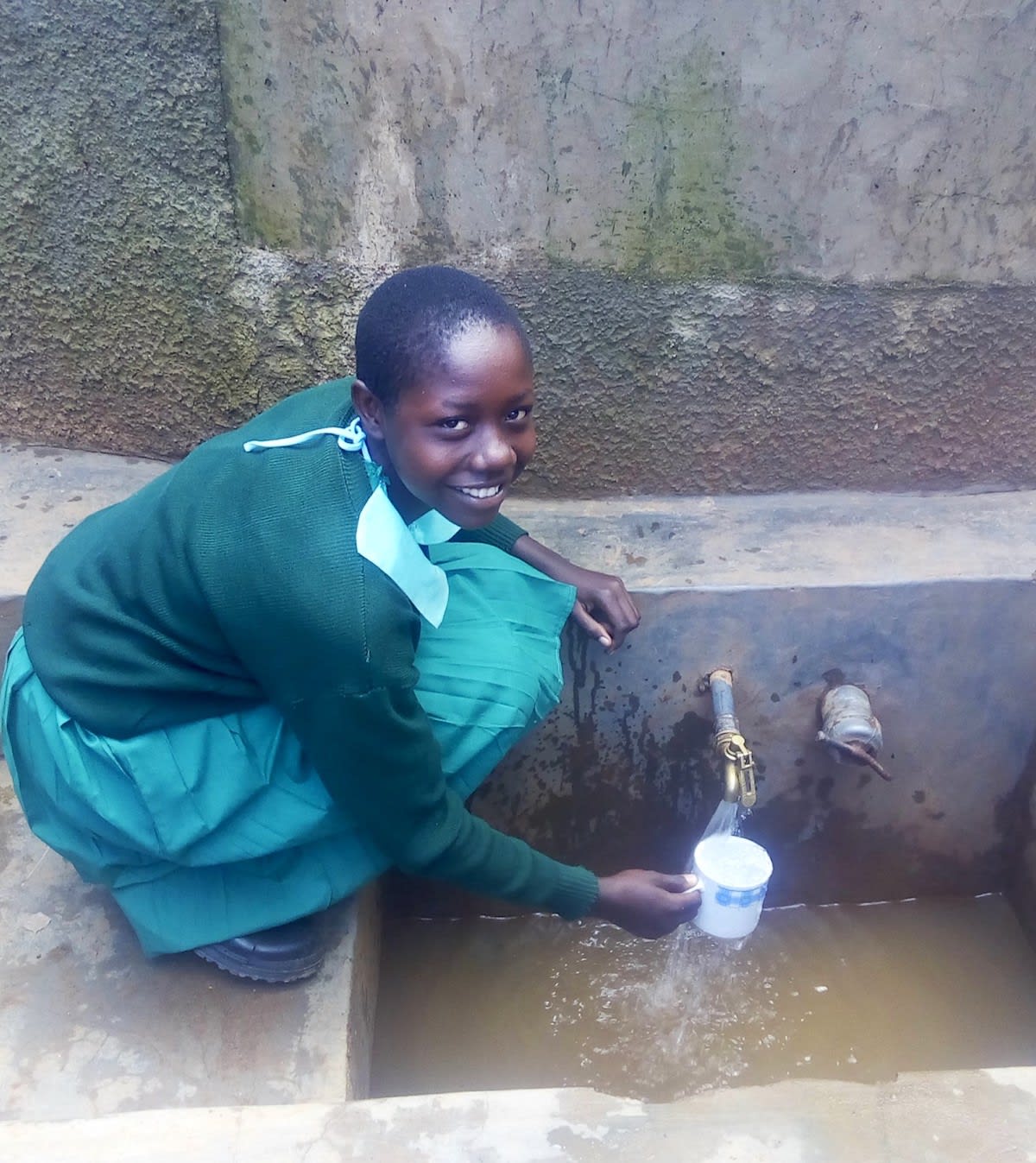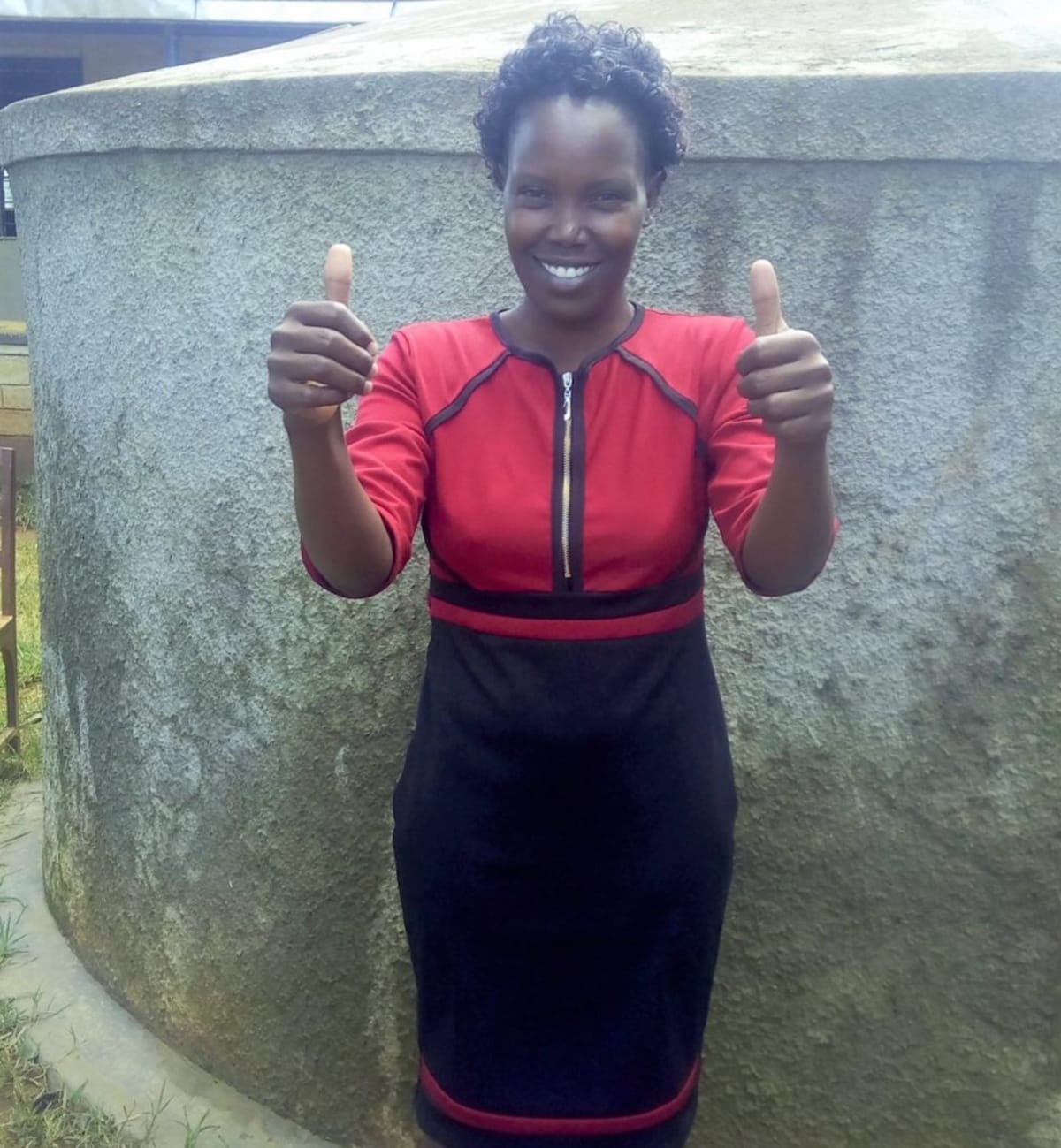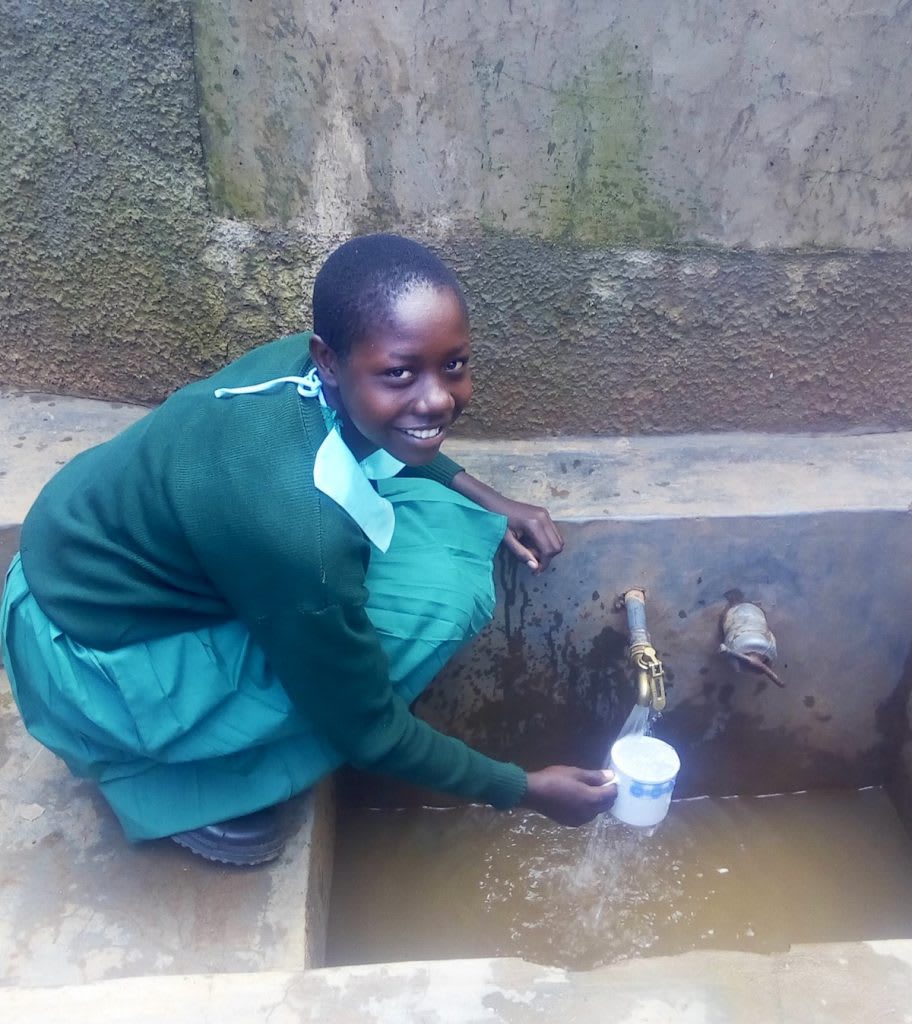This project is a part of our shared program with Western Water And Sanitation Forum (WEWASAFO). Our team is pleased to directly share the below report (edited for clarity, as needed).
Welcome to the School
Matende COG (Church of God) Primary School was established in the year 1936 by the Church of God missionaries who were also concerned about the need of education for African children in the area. They partnered with the community and established the school in the heart of Kakamega Municipality. Today, the school sits on 2.4 hectares of land and has a total enrollment of 409 pupils out of which 203 are boys and 206 are girls. There are also 60 early education children out of which 25 are girls and 35 are boys. The school also provides for 28 students with special needs. During our first visit to the school, we noticed that even one of the teachers is physically impaired and has to use crutches for support. This teacher is a great role model and encouragement for the students, so that they can believe that disability does not equal inability! Everyone can learn.
The school employs 22 teachers; 20 are employed by the Teacher's Service Commission (TSC) and the two early education teachers are employed by the school's Board of Management (BOM). The school employs three support staff throughout the week; one cook and two guards. (Editor’s Note: While this many people may have access on any given day, realistically a single water source can only support a population of 350-500 people. This school and their community would be a good candidate for a second project in the future so that adequate water is available. To learn more, click here.)
Since this area is in the busiest municipality, many pupils live in rented homesteads with none to little field land to practice agricultural activities.
Students wake up early and go straight to school. Lessons here begin at 7:30am and run up to the lunch hour at a quarter past noon. There are two short breaks before lunch, and during these breaks, pupils rush to the small plastic water tank to get a drink. After lunch, pupils return to their classes to learn until 4pm after which they have about an hour to play sports and games. This routine is the normal Monday to Friday schedule.
Water Situation
The school lacks a proper water source, and only has a plastic water tank that can hold at the most 1000 liters. 1000 liters is not nearly enough for the student population, let alone the staff. There's another small plastic reservoir, but it's worn out and nonfunctional. A full tank does not last long, so if there is little or no rain, the school has no water. This forces the students to go fetch water from a river that is 2km away. Other students don't want to make the 2km trek and instead carry water from their homes. In the pictures, you'll see that some teachers supplement the water supply by buying bottled water.
Sanitation Situation
We also noticed that the school’s sanitation needs to be addressed, since it only has four latrine stalls for boys and four for girls. And just because they have these four bathroom stalls doesn't mean they should be used! They are all very old, and most of them don't even have doors for privacy. Four other doors can't be used at all, since cracks in the floor pose great danger to users.
The school only has one hand-washing station that is used by the teachers. Since students have no way to wash their hands, they are at a high risk of contracting communicable diseases. This, paired with waterborne disease, has caused this school to have a high rate of absenteeism. Students are often too sick to attend school, and their families are forced to spend their meager funds on medical treatment.
Plans: Hygiene and Sanitation Training
Teachers and students will be trained on hygiene and sanitation practices for two days. This will equip them with relevant skills on how to operate and maintain the new rainwater catchment tank. It will also equip participants with the skills needed to practice good hygiene, and to promote these practices among peers and the greater community. The end goal is to eliminate water and hygiene-related diseases!
The facilitator plans to use PHAST (Participatory Hygiene and Sanitation Training), CTC (child to child), discussions, lectures, and demonstrations to teach topics including but not limited to disease transmission, hand-washing, and water treatment. The CTC method will prepare students to lead other students into healthy habits, as well as kickstart a CTC club for the school.
Plans: Rainwater Catchment Tank
This rainwater catchment tank will have a 30,000-liter capacity. The school will be involved in making sure that all the needed local materials are on site, such as sand, ballast, and hard core. They will also supervise and monitor the project.
Plans: VIP Latrines
Six new VIP (ventilated improved pit) latrines will be dug and built for these students. This will help shorten the bathroom lines and ease the rate of open defecation on campus. With a water tank, the students will have more water to use, giving them a chance to keep their latrines and classrooms cleaner.
Plans: Hand-Washing Stations
Two hand-washing stations will be delivered to school grounds. They are large, plastic containers that come with stands and are fitted with taps. The students that are members of the CTC club will be responsible for ensuring the tanks always have water and a cleaning agent available.

 Rainwater Catchment
Rainwater Catchment
 Rehabilitation Project
Rehabilitation Project





















